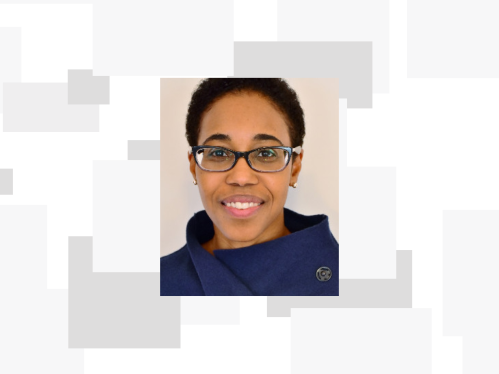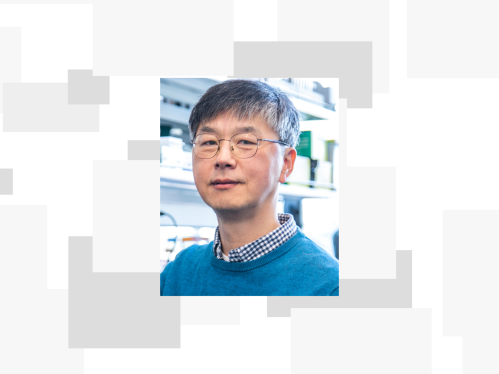Meet Your Campus FDC Liaison
Crystal Bedley, Ph.D.
Rutgers–New Brunswick
Crystal Bedley is the senior director for inclusion and faculty diversity. She is responsible for leading strategic efforts to nurture faculty diversity, build the capacity of academic leaders, and equip whole departments to effectively negotiate the range of differences present in a compositionally diverse community. Dr. Bedley integrates faculty diversity and diversity education efforts to develop and sustain an inclusive academic culture at Rutgers–New Brunswick. She oversees the Tyler Clementi Center for Diversity Education and Bias Prevention, ensuring that educational programming and initiatives improve cultural competence, reduce bias, and promote understanding and engagement on issues related to diversity and bias prevention to enable an inclusive community.
Dr. Bedley comes to this role with 15+ years of experience in organizational and whole system transformation to foster inclusion, retention, and success for marginalized and historically disadvantaged populations in higher education, investing much of her career to advance women faculty in science, technology, engineering, and mathematics. Having worked on and led NSF ADVANCE Institutional Transformation projects, she promotes transformation by building innovative, strategic, and sustainable initiatives, adapting and implementing promising practices from industry to higher education, translating scholarship into practice, fostering cross-institutional and intradepartmental collaborations, engaging and developing leaders, and assessing impact. Dr. Bedley, a McNair alumna, earned her Ph.D. in Sociology from Rutgers University.

Ashaki Rouff, Ph.D.
Rutgers–Newark
Ashaki Rouff is Associate Director of the P3 Collaboratory for pedagogy, professional development and publicly engaged scholarship and is faculty in the Department of Earth and Environmental Sciences at Rutgers–Newark. She is an Environmental Geochemist studying contaminants in natural, human-impacted, and engineered systems. Her research addresses local and global issues related to sustainability and urbanization, including waste valorization for nutrient recovery and resource conservation, contaminant sequestration using sustainably sourced sorbents, and heavy metal pollutant profiles and speciation in local urban soils. She leverages her research and professional activities to expand and create opportunities for minoritized groups in the geosciences and other scientific disciplines. In support of initiatives to increase representation in STEM, she has received funding from the National Science Foundation, the Alfred P. Sloan Foundation and the Clare Boothe Luce Foundation.

Kwangwon Lee, Ph.D.
Rutgers–Camden
Dr. Kwangwon Lee is a Full Professor in the Biology Department in Camden. He will serve as the co-chair for the campuswide DEI council and will work to ensure all efforts align and complement the work of the Office of the Provost. For the past 10 years, he has served as the Director of Undergraduate Biology revamping the 4-year experiential learning curriculum for biology majors. In this role, he has worked to orient Biology students to be more socially conscious and outward-focused. In recognition of his ongoing impact on the Biology curriculum, Dr. Lee received the Chancellor's Award for Teaching Excellence in 2016.
In the Fall of 2019, Dr. Lee started a group focused on creating sustainable STEM education at Rutgers–Camden and worked on a grant for the HHMI Driving Change Initiative. The group grew to over 60 members representing students, staff, and faculty and went on to receive $60,000 from the initiative to perform a self-study for the equitable STEM climate at Rutgers–Camden. He is also leading an effort to transform the Driving Change group into The Camden STEM Equity Ecosystem (C-SEE) by inviting local high school science teachers and regional industry leaders to the community. In recognition for these contributions, Dr. Lee received the Chancellor's Award for Academic Civic Engagement in 2016 and the Chancellor’s Award for Diversity, Inclusion, and Civic Engagement in 2022.
As a scientific researcher and scholar, Dr. Lee has produced 20 journal articles, 43 abstracts for scientific conferences, and has been invited to 33 seminars as a speaker. He has raised $2,965,290 in competitive federal grants (NIH/NSF/USDA) and $95,960 in internal grants. Dr. Lee’s long-term research topic is studying the ecological and evolutionary biology of complex traits in eukaryotic model organisms. The fungus Neurospora has been his choice organism for addressing questions in circadian/circannual rhythms and carbon metabolism since many genetic and genomic tools are available. For the past four years, we have used Drosophila melanogaster to study circadian/circannual rhythms.



